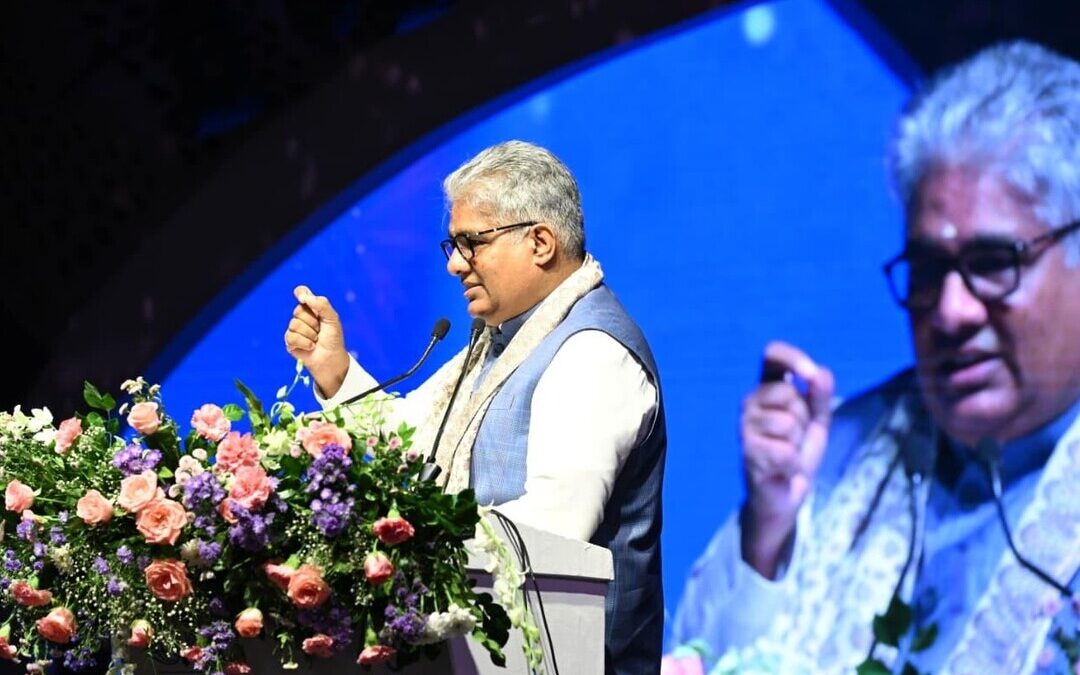India Announces New Environmental Rules at Global Sustainability Summit
India announces new rules on audits, green credits and minerals to strengthen climate action and sustainable growth.
Environment Minister Bhupender Yadav on Tuesday announced new policy measures on environmental audits, green credits and critical minerals, saying the country’s model of development is rooted in balancing economic progress with ecological stewardship.
Addressing the 20th Global Sustainability Summit in New Delhi, Yadav told delegates: “Sustainability should not be considered as a goal or an objective. I believe it is a lifestyle choice, an evolving commitment to be resilient, regenerative and responsible.”
Yadav said the government notified the Environment Audit Rules 2025 on August 29, creating a two-tiered system of auditors and a dedicated agency to oversee compliance.
“These rules are designed to supplement the existing monitoring and inspection framework of the government, not to replace it,” he said.
Revised Green Credit Programme
On the same day, the government issued a revised methodology for the Green Credit Programme, first launched in October 2023.
Yadav said the strengthened framework allows direct participation by private entities, sets minimum restoration commitments, mobilizes private capital for climate action, and permits the use of earned green credits.
“The revised methodology ensures that the Green Credit Programme becomes a catalyst for meaningful eco-restoration,” he said.
Forest Rules for Critical Minerals
Yadav said the Ministry amended the Forest (Conservation and Augmentation) Rules 2023 on Aug. 31 to support the National Critical Mineral Mission.
The mission identifies 24 critical and strategic minerals, as well as 29 other essential minerals, that are crucial to the economy and national security. The amended rules “simplify the approval process for mining these minerals in forest areas for both public and private entities,” he said.
India’s Broader Climate Agenda
Yadav said India has emerged as the fastest-growing major economy while leading efforts on climate action.
“India is the only country that has successfully adapted sustainable growth across the policy landscape through targeted scheme implementation, infrastructure investment, local commitment and tangible achievements on multilateral commitments,” he said.
He added that the government is preparing to launch a National Adaptation Plan. “Driven by science-led evidences and guided by grassroot realities, NAP will act as a blueprint for embedding adaptation into national development policies across sectors, ensuring a systematic and long-term approach,” he said.
Concluding his address, Yadav urged industry and stakeholders to align with national aspirations. “By embracing resilience, regeneration, and responsibility, let us chart a course towards a more sustainable world,” he said.
The two-day summit, hosted by the CII-ITC Centre of Excellence for Sustainable Development, drew representatives from more than 10 countries and Indian industry leaders.
Nirmal Menon
Related posts
Subscribe
Error: Contact form not found.


